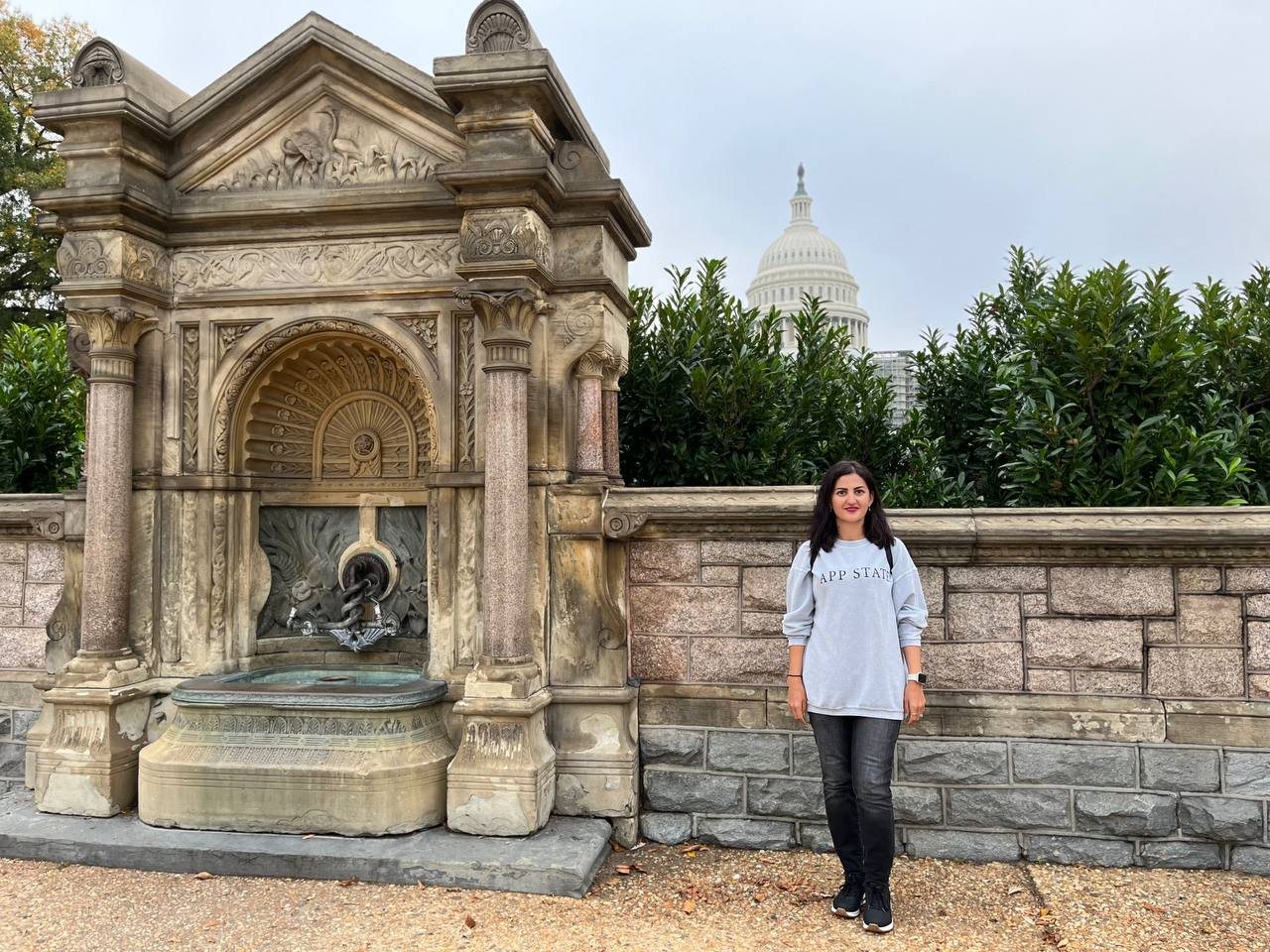
In October 2022, Billura Ikramova, an ESN Core Trainer from Bukhara, successfully completed the 6-week Fulbright Teaching Excellence and Achievement (TEA) Program. Billura was selected to participate in the program following a competitive application process. This fall, she spent six weeks At Appalachian State University in North Carolina, USA, attending professional development seminars. Reflecting upon her experience in the U.S. she noted: "It was travel saturated with emotions and insights. During my stay in the U.S., I visited a number of beautiful places such as the Lincoln Memorial, the Memorial Bridge over the Potomac River, George Mason University, the National Air and Space Museum, the White House, and the Capitol in Washington D.C., and the Blue Ridge Parkway Museum and Grandfather Mountain in Boone, and The Museum of Civil Rights in Greensboro, North Carolina.
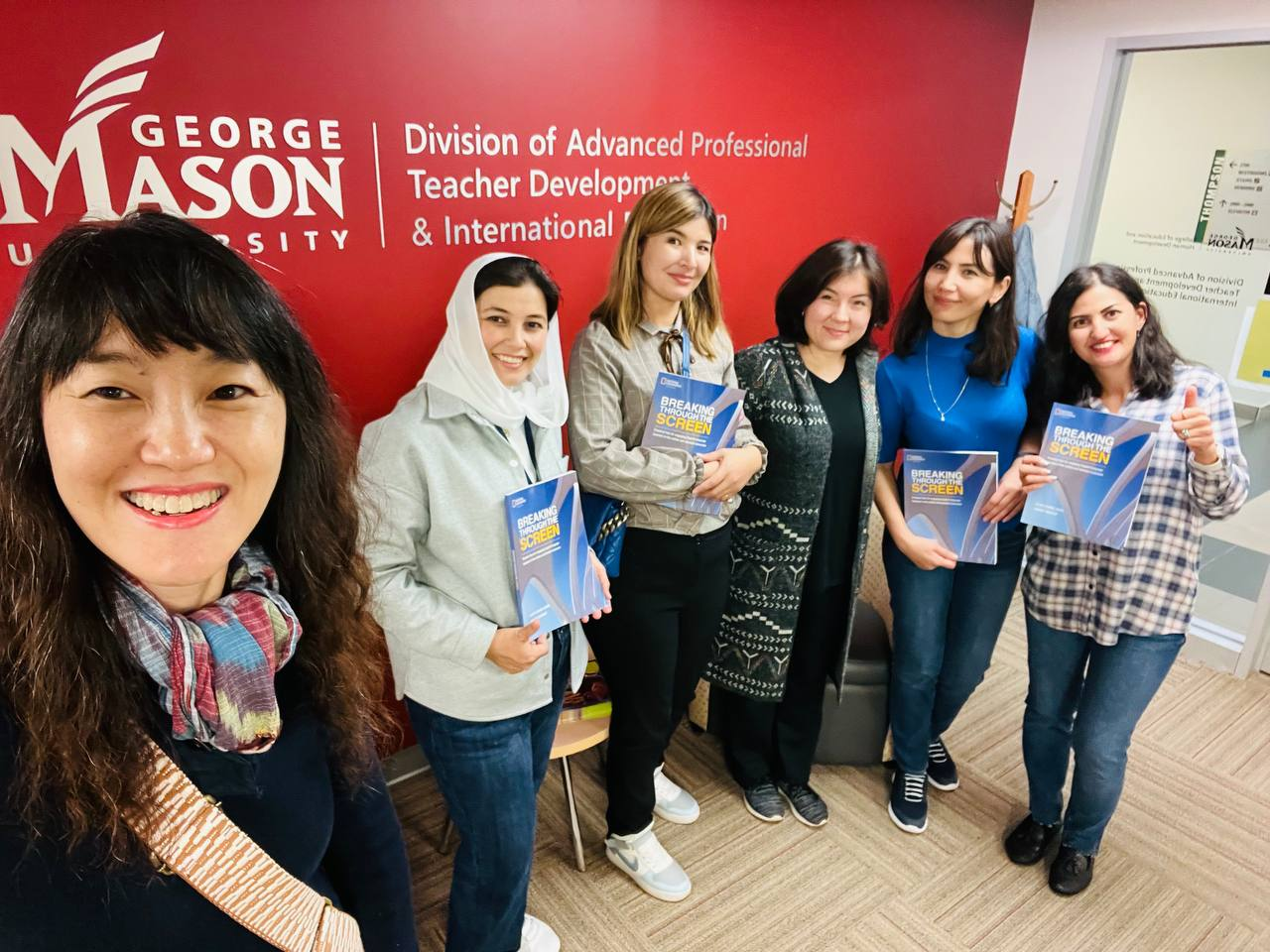
I also attended several cultural events such as the Junaluska country music concert, a community dance event, Halloween trick-or-treating, a cook-off featuring American and international cuisine, an American football match, the school alumni’s homecoming, the Valley Country Fair, Buskers Festival, and a fire spinning performance. I also went canoeing, and bowling, and gossiped with new friends at a ladies' party.
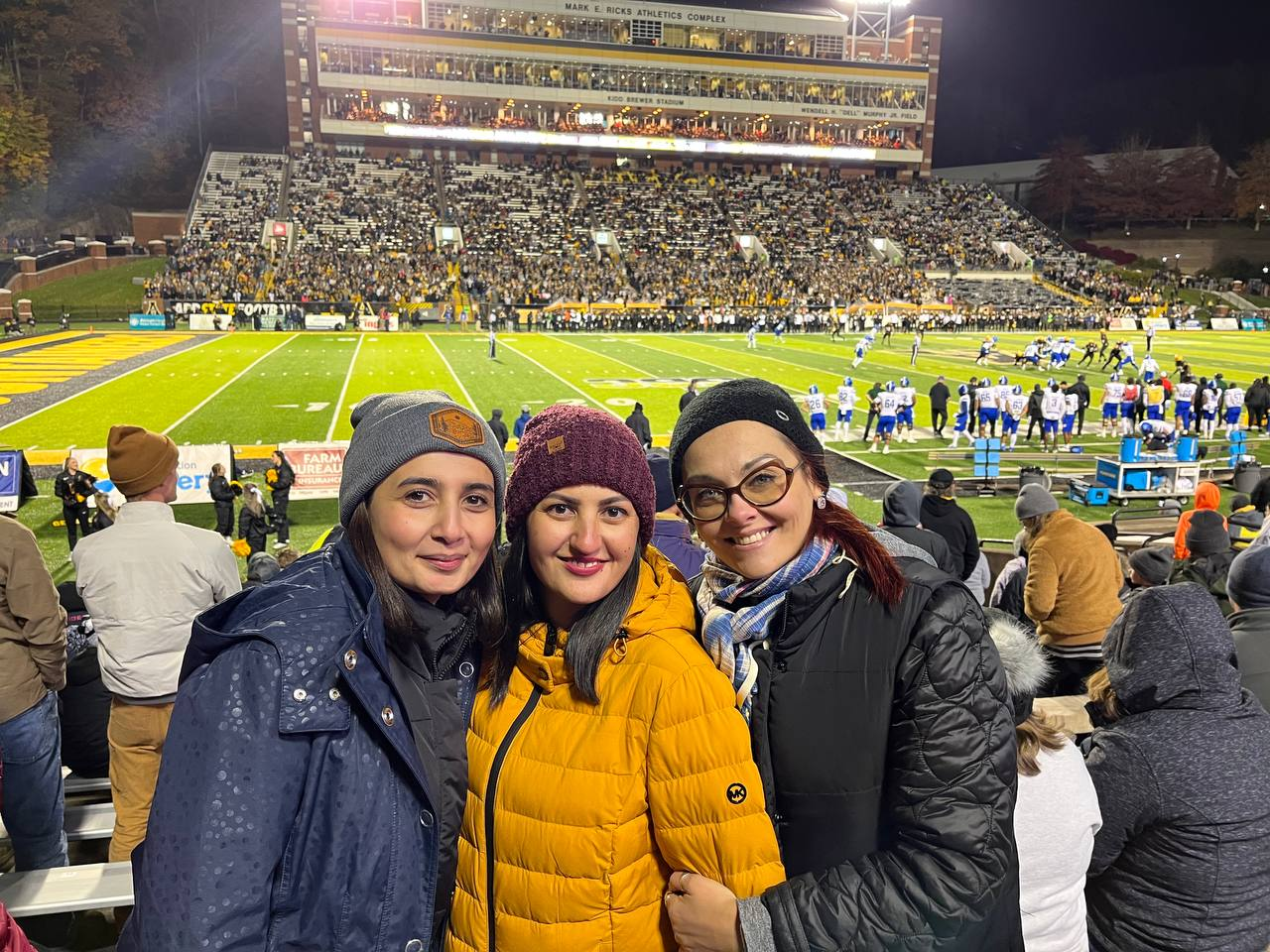
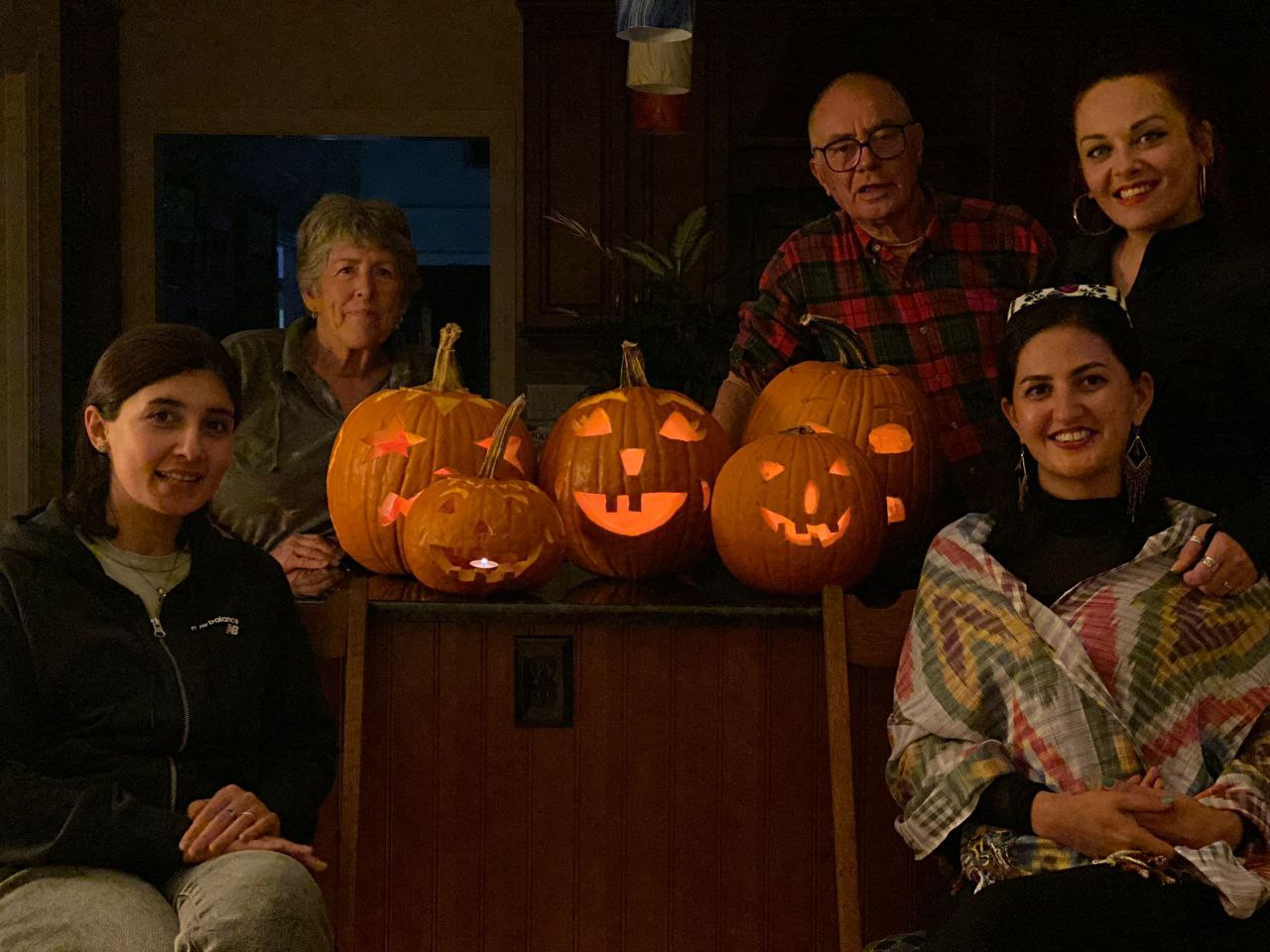
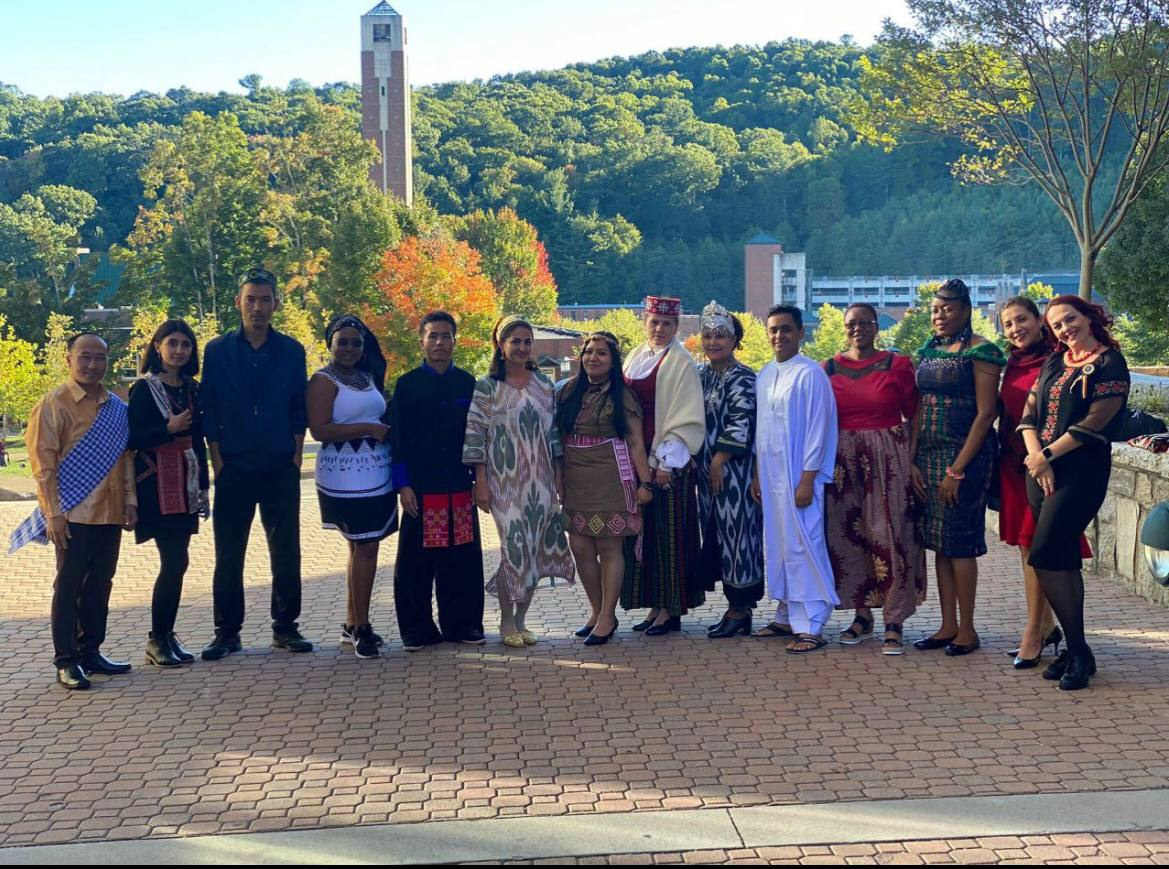
While at Appalachian State, I had the opportunity to meet with the Appalachian Community of Education Scholars program leaders, and I presented about opportunities for girls in education in Uzbekistan at the Virtual 7th Women in Educational Leadership Symposium.
I also visited several schools in North Carolina such as South Cardwell High School, Elkin city school, Cardwell County school, and Allegheny County school. Visits to schools are the most exciting experience I had in the U.S. My main goal was to observe classroom management, rapport between a teacher and students, student-student interactions, and, collaboration, as well as school staff meetings, student cultural performances, student extracurricular activities, and volunteering activities/ community services for students. Because my host university organized many visits to schools and meetings with faculty and staff my expectations were met to the fullest. I am so happy that I achieved my goal.
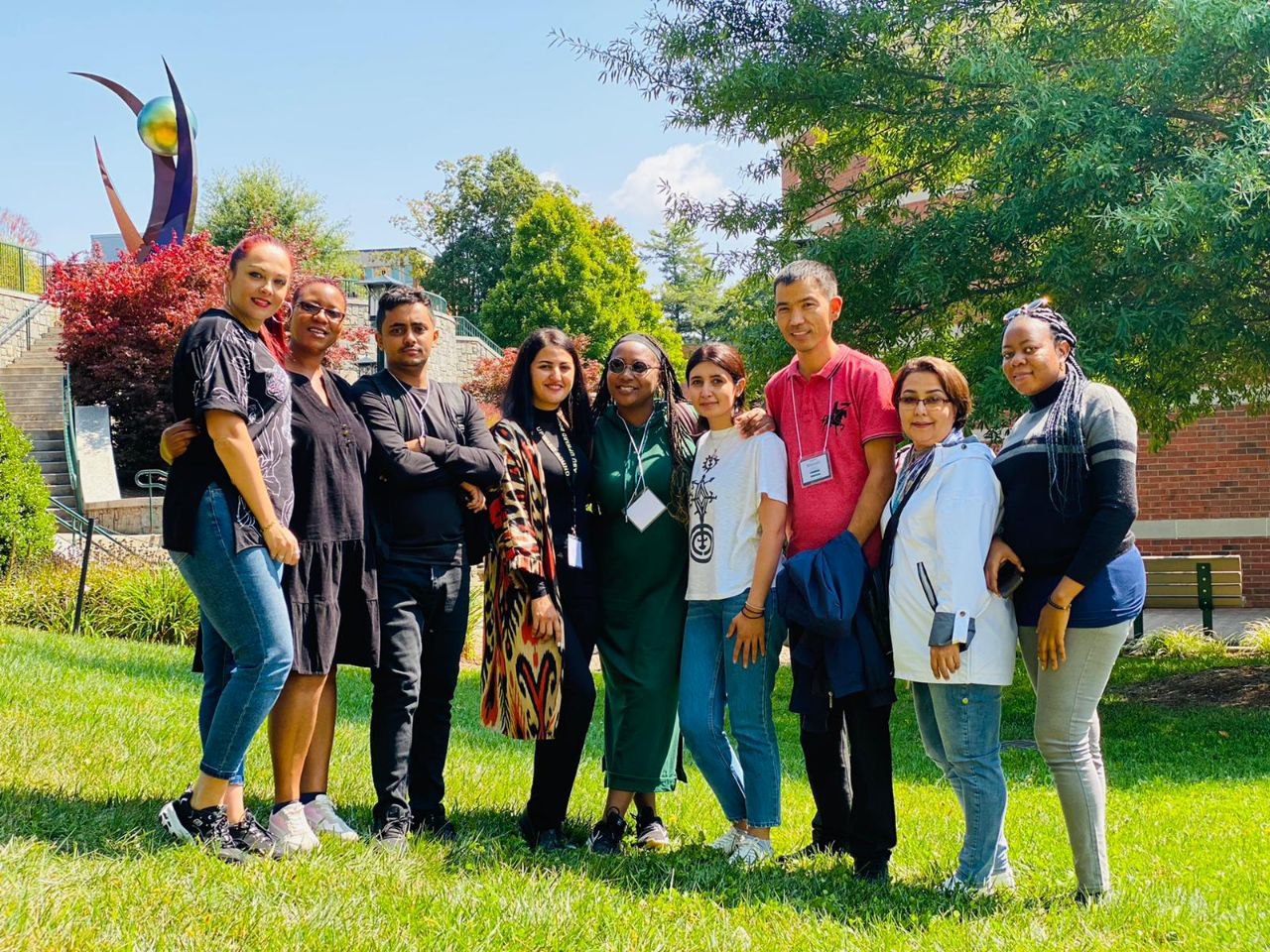
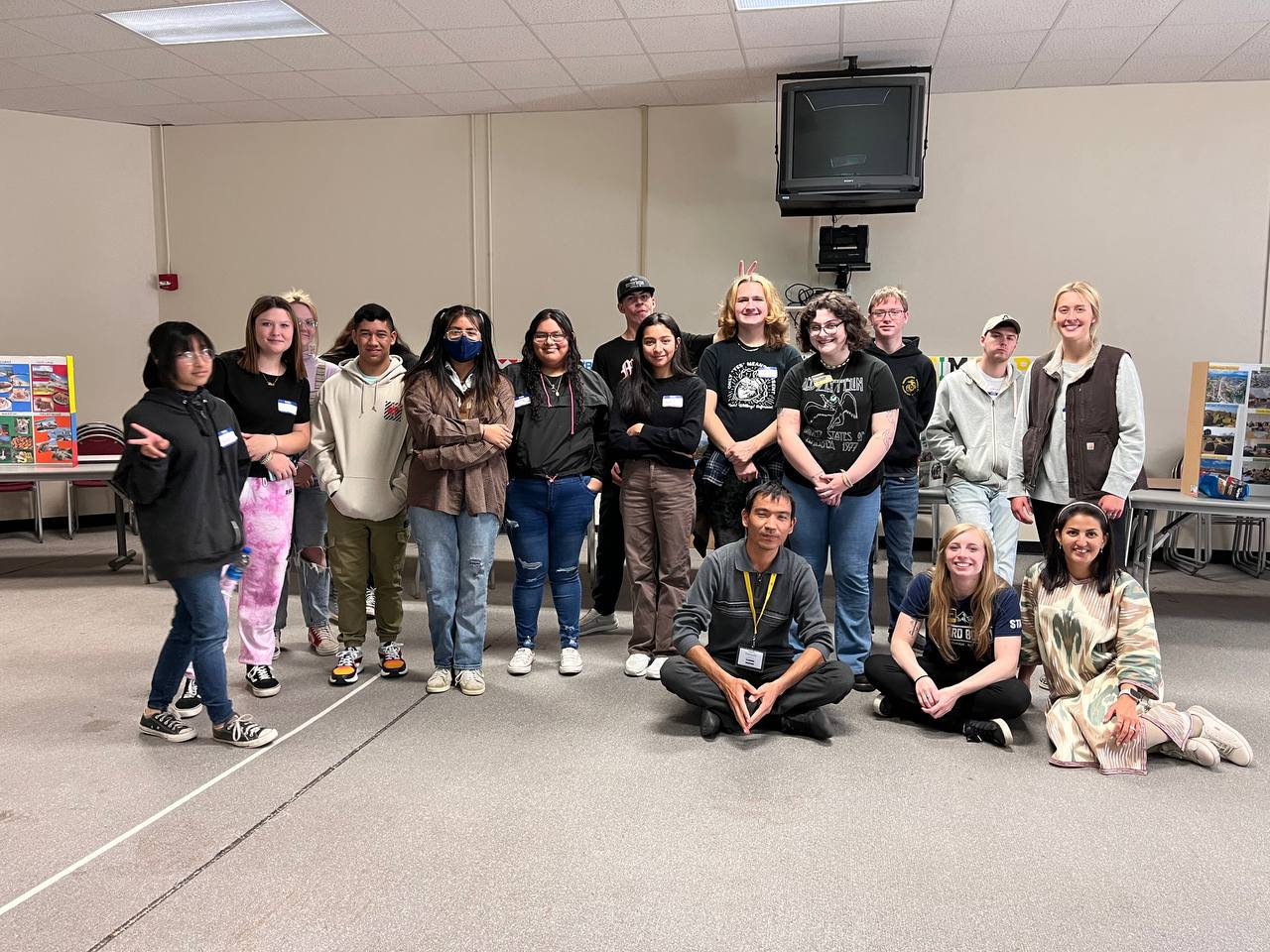
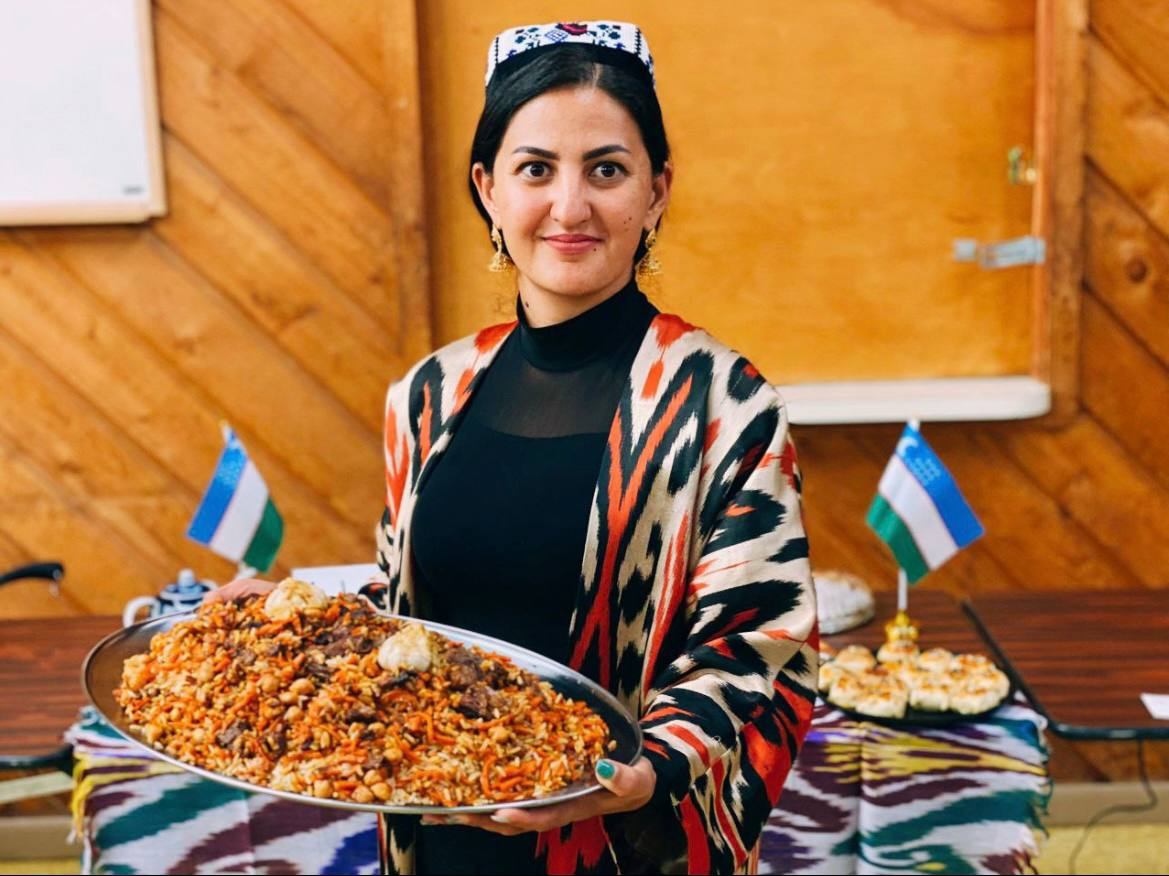
The academic sessions were amazing. I learned a lot. One of the topics I got interested in – and wish to explore further – is the Universal Design of Learning (UDL). The reason why it is interesting for me is the fact that UDL focuses on not only creating opportunities for learners but also the ways of successfully dealing with barriers and obstacles the learners face. From my point of view, UDL leads to dramatic progress because it is a one-size-fits-all approach that deals with each and every student’s needs and abilities.
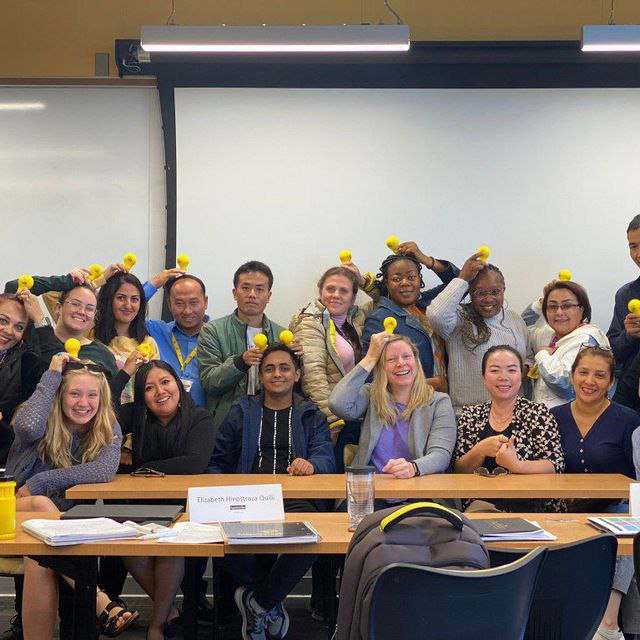
What surprised me is that in U.S. schools there is something called “flex time.” Flex time is a flexible period of time in a school schedule where students can get what they need when they need it. It empowers teachers to give students what they really need — time, during the school day. Flex time usually lasts for 30-45 minutes. However, it can be as little as 20 minutes, or last for an hour. Students can use flex time for enrichment, extra help, social-emotional support, and more! Flex time is there for whatever a student needs most.
It was my privilege to introduce the ESN Program to my international Fulbright Fellows, Appalachian State University 2022 Fulbright TEA Program Faculty Directory, Aleksander Dardeli (executive vice president at IREX), and Amy Bernath (the director of Education Practice at IREX).
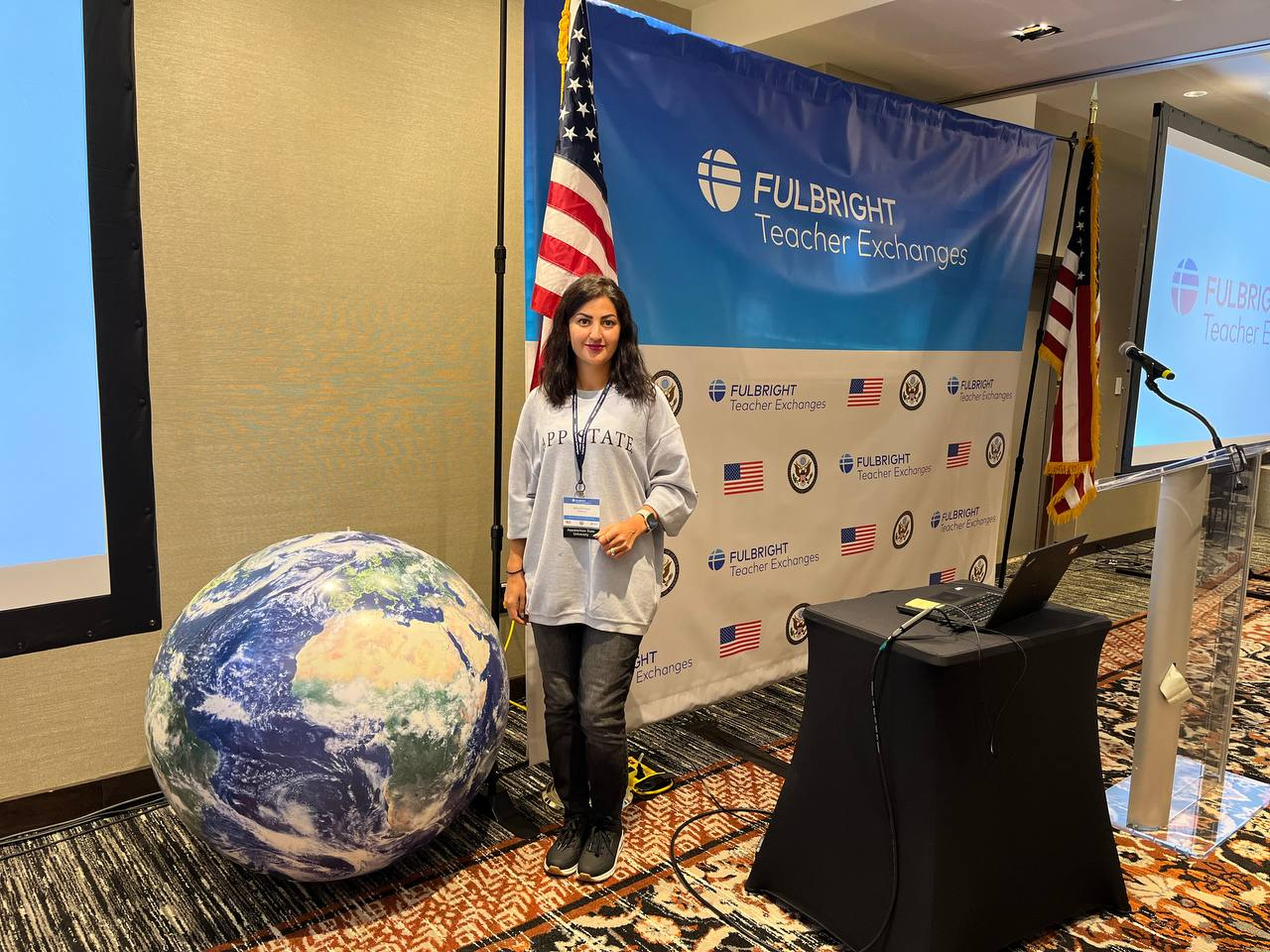
Our conversations were about the ESN program goals, the U.S. institutions, associations, instructors providing professional development courses, the steps of the program, the number of teachers involved in professional development training, achievements, and my feedback on the program as I am actively involved as Core Trainer.
Before I went to the U.S. as a Fulbright TEA Program participant, I was already familiar with learner-centered approaches, techniques, and strategies from my experience TESOL, TETE, and TOT courses during ESN. What I brought back from the Fulbright TEA program was lived experience. I had an opportunity to put all that I previously learned from the ESN program into practice and observe the EFL classes in U.S. schools. Additionally, the conversions with the U.S. students and teachers broadened my thinking in terms of the teacher's role and lesson plan design. Moreover, the Fulbright program connected me with I the community of teachers worldwide.
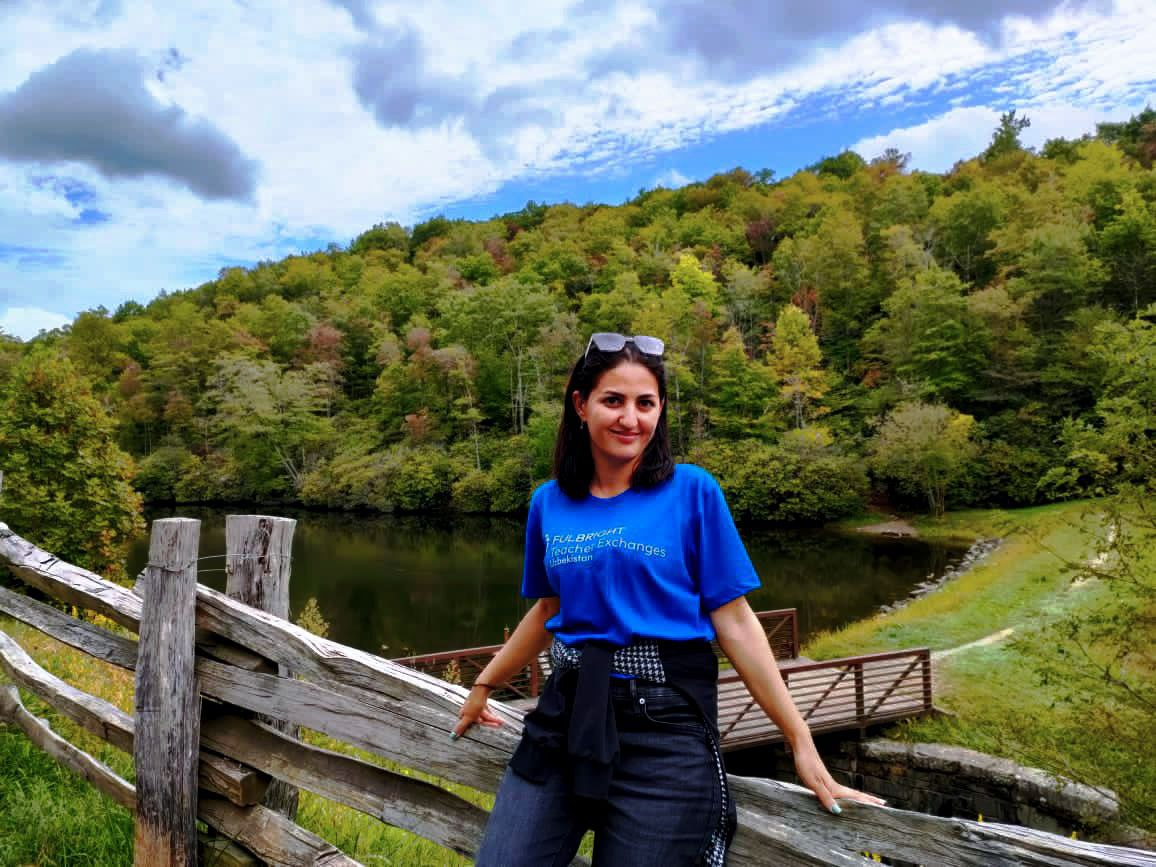
The co-director of the Fulbright TEA Program, associate Vice Chancellor Dr. Jesse Lutabingwa mentioned repeatedly to us, Fulbright Fellows: “Do not underestimate yourself”. (It is still green in my memory lane). Supporting what he said, I would add: “take opportunities as they come, and where they do not present themselves, create them”. I strongly encourage each and every teacher of my community to be open to positive changes and be courageous to contribute towards further development of the education system of Uzbekistan, as well as to be willing to share their experiences and collaborate globally."
Billura is thrilled to express her gratitude to those who supported her during her journey. She notes, "Last but not least, I desire to express my gratitude towards the American Councils ESN program and the Bureau of Educational and Cultural Affairs of the United States Department of State for investment in people and education, as “An investment in knowledge pays the best interest” (Benjamin Franklin). These three years of being involved in projects in American Councils shaped me as not only a more skilled teacher but also as a self-confident, goal-oriented personality."
